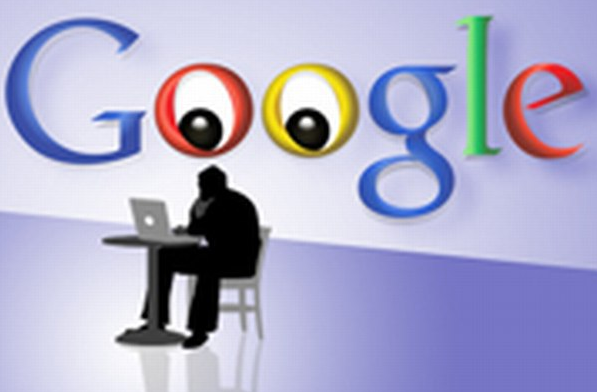Toner News Mobile › Forums › Toner News Main Forums › Eu Courts Deals Huge Blow To Google
- This topic has 0 replies, 1 voice, and was last updated 9 years, 7 months ago by
Anonymous.
-
AuthorPosts
-
AnonymousInactiveEu Courts Deals Huge Blow To Google
Court Rules We Should Have A Say In What Comes Up When We're Googled
By TOBY STERLINGAMSTERDAM (AP) — People should have some say over the results that pop up when they conduct a search of their own name online, Europe's highest court said Tuesday.
In a landmark decision, The Court of Justice of the European Union said Google must listen and sometimes comply when individuals ask the Internet search giant to remove links to newspaper articles or websites containing their personal information.
Campaigners say the ruling effectively backs individual privacy rights over the freedom of information.
In an advisory judgment that will impact on all search engines, including Yahoo and Microsoft's Bing, the court said a search on a person's name yields a results page that amounts to an individual profile. Under European privacy law, it said people should be able to ask to have links to private information in that `profile' removed.
It is not clear how exactly the court envisions Google and others handling complaints, and Google said it is still studying the advisory ruling, which cannot be appealed.
In the ruling, the court said people "may address such a request directly to the operator of the search engine … which must then duly examine its merits." The right is not absolute, as search engines must weigh "the legitimate interest of Internet users potentially interested in having access to that information" against the right to privacy and protection of personal data.
When an agreement can't be reached, the Luxembourg-based court said the matter can be referred to a local judge or regulator.
Debates over the `right to be forgotten' – to have negative information erased after a period of time – have surfaced across the world as tech users struggle to reconcile the forgive-and-forget nature of human relations with the unforgiving permanence of the electronic record.
The idea of such a right has generally been well-received in Europe, while many in the U.S. have critiqued it as a disguised form of censorship that could allow convicts to delete references to past crimes or politicians to airbrush their records.
Tuesday's decision came as a surprise since it went counter to the advice the court received from its own top lawyer last year. The European court became involved after Spain's Audiencia Nacional, or national court, asked for its opinion in 200 pending cases. Tuesday's ruling will inform upcoming Spanish decisions.
Alejandro Tourino, a Spanish lawyer who specializes in mass media issues, said the ruling was a first of its kind and "quite a blow for Google."
"This serves as a basis for all members of the European Union, it is (a) most important ruling and the first time European authorities have ruled on the `right to be forgotten,'" said Tourino, who has worked for The Associated Press in several legal cases and is the author of "The Right to be Forgotten and Privacy on the Internet."
A law that would formally establish a "right to be forgotten" is still under debate in the European Parliament, and Tuesday's ruling focused on existing privacy laws.
Google spokesman Al Verney said Tuesday's ruling was "disappointing … for search engines and online publishers in general." The company, he said, will "now need to take time to analyze the implications."
The referral to the European Court derives from the case of Mario Costeja, a Spaniard who searched his name on Google and found links to a notice that his property was due to be auctioned because of an unpaid welfare debt. The notice had been published in a Spanish newspaper in 1998, and was tracked by Google's robots when the newspaper digitalized its archive.
Costeja argued that the debt had long since been settled, and he asked the Spanish privacy agency to have the reference removed. The agency agreed, but Google refused, saying it should not be asked to censor material that had been legally published by the newspaper.
Though Costeja's case will now be reviewed by the Spanish court, the European decision strongly implies such requests should be granted.
However, it is not clear how it will impact other cases also in the Spanish docks, such as that of a plastic surgeon who wants mentions of a botched surgery removed.
Or in other countries.
Some limited forms of a "right to be forgotten" exist in the United States and elsewhere – including in relation to crimes committed by minors or bankruptcy regulations, both of which usually require that records be expunged in some way.
Digital rights groups had mixed reactions to the court's decision.
"We need to take into account individuals' right to privacy but if search engines are forced to remove links to legitimate content that is already in the public domain but not the content itself, it could lead to online censorship," said Javier Ruiz, Policy Director at Open Rights Group.
"This case has major implications for all kind of internet intermediaries, not just search engines.
Google currently advises users to approach websites that have published information about them as a first step in having it cleared from the Internet: once a site removes the content, Google's result links to the material will disappear soon after.
The Mountain View, California-based company also offers a guide to users on how best to approach having personal information removed from the web.
-
AuthorMay 13, 2014 at 11:14 AM
- You must be logged in to reply to this topic.


